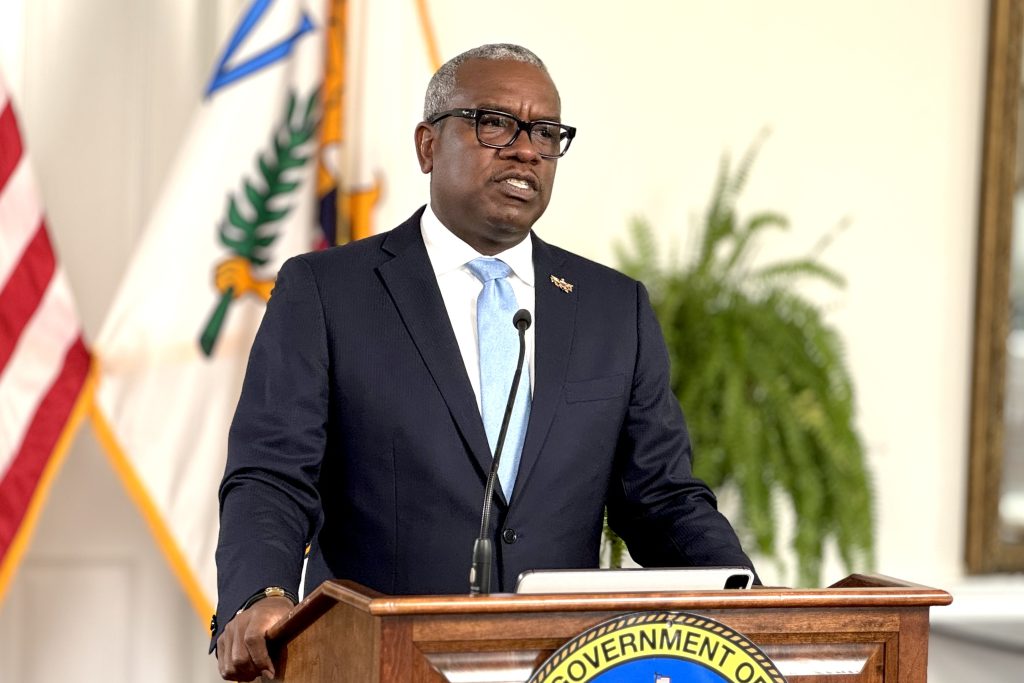“CBI neighbors “selling passports” will miss out on USVI investment boom”
Governor of the USVI Albert Bryan is advocating for visa-free access to the United States for Eastern Caribbean nations not offering ‘citizenship by investment’ (currently St. Vincent and the Grenadines and Barbados) and offering access to the United States Virgin Islands Economic Development Commission programme, which provides incentives including 90% waivers on state and Federal corporate and personal income tax.
Eight years after two Category 5 hurricanes devastated the United States Virgin Islands, the rebuild continues with the support of $24 billion in approved Federal funding. The island of approximately 86,000 is experiencing record unemployment and high investment and needs more talent to support the rebuild.
While Governor Albert Bryan is bullish on the economy, citing a tourism boom, a complete infrastructure rebuild over the next 15 years and generous tax incentives, he worries that neighbours who could benefit are going to miss out because of what he calls “the sanctity of the passport”.
Citing global security concerns around ‘citizenship by investment’ programmes common in many Caribbean nations, Governor Bryan worries that thousands of qualified, talented workers will not see the opportunities available.
Governor Bryan said:
“We want to have agreements to import labour from Barbados and Saint Vincent and the Grenadines. They can actually benefit from people repatriating that income back to their families in their home place.
“We have to make sure that the people who come here temporarily to work will not expose the islands or the United States to the growing, obvious risks associated with ‘citizenship by investment’.”
“Our tourism product is on fire. We have been at 4% unemployment for the last two years. We’ve been breaking records for how low the unemployment is. There’s essentially nobody left to work. So we just need the talent. And I go to other places in the Caribbean, and I see people who could be put to work doing a lot of stuff here.”
And while Governor Albert Bryan Jr is definitive on the need to fill local jobs to support a booming tourism sector and a generational infrastructure project, he’s adamant about maintaining the integrity of the immigration system.
“We want to boost our population. We want Caribbeans, people connected to island culture,” he says.
But with many of the Caribbean’s islands participating in ‘citizenship by investment’ programmes, he’s calling for a more robust system that would allow neighbouring countries to benefit from the opportunities he’s seeing.
“Look at St Vincent,” he says”.
“What they’re doing there, especially the preservation of the sanctity of their passport system, is aligned with our outlook. Because our programme here doesn’t give you a passport. You have to establish residency on the island, but it doesn’t mean you get a passport.”
On the rebuild, Governor Bryan believes it’s a great time to work on the United States Virgin Islands.
“It’s going to take us at least 10 to 15 more years to get this done. We’re essentially doing all of our infrastructure: sewers, water, power plants, electrical, most of our schools, two hospitals, two nursing homes, four clinics, you name it. At the same time our economy is booming.
“The thing about growing your economy is that you get people from all over, and you know if we’re going to grow, we would prefer to grow with Caribbean people who relate to our culture and have close ties here in the US Virgin Islands. I think we’re the most diverse 100,000 people in the world.”
Many Caribbean nations offer some form of CBI, including Antigua and Barbuda, Dominica, Grenada, St Kitts and Nevis, and St Lucia.
Notable opponents to the practice include St Vincent and the Grenadines and Barbados.
The deliberate shift in security posture reflects growing global concerns about the security risks inherent in ‘CBI’ programmes.
Citizenship by -investment schemes in the Caribbean have raised security concerns globally, primarily revolving around the potential for identity fraud, money laundering, and facilitating transnational crime.
Critics, including the US, UK, and EU, fear that some schemes lack adequate due diligence, allowing individuals to become citizens without sufficient vetting, raising concerns around people potentially involved in organised crime, terrorism, espionage, or sanctions evasion gaining citizenship and visa-free access to other countries, including the United States.



